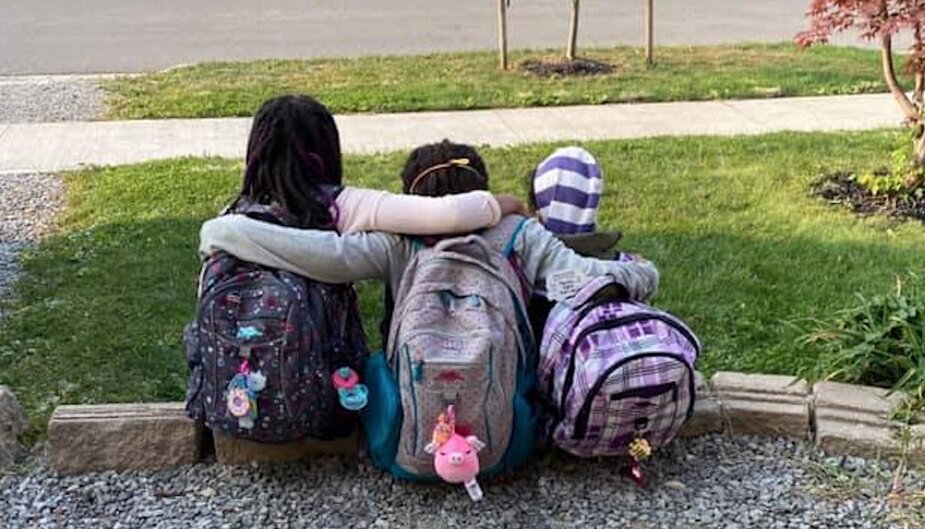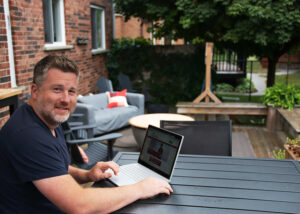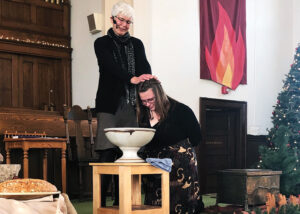Mary Anne Neufeld of Vineland, Ont. teaches Kindergarten in the public school system and was surprised at the beginning of the school year that 92 percent of students returned to the classroom instead of taking online classes. This was a tough decision for many parents.
Staff members at Neufeld’s school were nervous, but the professional development days at the beginning of the first week were helpful. Teachers cover all subjects so that students do not need to move from class to class. Surgical-grade masks must be worn by the staff, face shields are also supplied, but their use is optional. Gloves are provided for specific circumstances.
There are no volunteers in school; parents pick up their children at the gate, which is monitored by the staff. Neufeld says that parents are accepting the new face of education and are helping their children to adjust, not leaving all the responsibility up to the teachers.
The students have been very cooperative about waiting in line and not complaining about distancing. Masks are mandatory for students from grades 4 to 8 and optional for Kindergarten to Grade 3. Kindergarten no longer includes free play, instead children stay at one activity-station for the day. Older students stay at their desks. Music class does not include singing, only rhythm and instruments, in outdoor classes. Gym classes are also held outside. The students are glad to be at school where they are able to see their friends, and they are accepting of the different daily routines.
Sarah Ewert Johnson’s three girls are at school in St. Catharines, Ont. Her 10-year-old was happy to see her friends again but sad to learn there would be no singing, no reading buddies, no computer time and no class trips. Balls have to be sanitized when playing games. Playing soccer is difficult but still fun. Her daughter says, “When playing at a distance outside we do not have to wear masks. If we use things from the school, they have to be quarantined for a certain amount of time and sanitized before another student or class can use them.” She misses her friends in the other classes because of the staggered times to go outside.
Johnson’s eight-year-old daughter had butterflies in her stomach because of all the new rules and the unknowns, but she was happy to see her friends. She commented, “Because of smaller class sizes I miss my friends that are in the other classes. Wearing a mask is better than I thought it would be.” Even though her grade does not need to wear masks, she does and wishes more of her classmates would do so.
St. Catharines resident Irene Giesbrecht teaches French in a private secondary school. She reflected on the first week and how hard it was for the students to keep their masks on; they certainly didn’t when they got on the bus. The second week brought several COVID cases into the school. This made the students realize how serious the situation was and they began to wear masks without hesitation.
During that first week the school had an additional 100 students registered. There are now three additional portables filled to capacity, and the huge staff room was converted into a classroom. The staff room is currently in the library. The most practical way to handle things is for the teacher to travel from class to class.
Students with compromised immune systems have opted to learn remotely. Teachers connect with parents to assist and monitor the work done at home.
The Health Department checks the schools regularly with nurses working in the schools almost daily. Teachers and other adults entering the school are screened every day. Any student with a runny nose or a cough is told to stay at home, along with their siblings.
Overall, Giesbrecht says, “The students are happy to be at school, socializing and feeling a definite sense of belonging.”
Matt and Jesslyn Froese of Vineland have decided to homeschool their school-age children this year. They commented, “Homeschooling will provide us with the opportunity to engage in our children’s education while providing us with more time together.”
Irene Heyder of St. Catharines is the grandmother of a third grader. She reflected, “I’m grateful for the opportunity to be one of several people to supervise my grandson while he is learning virtually. I’ve always wanted to be a fly on the wall in his classroom so I can watch what happens, and now, in a way, I can. I’m loving it . . . and it seems that he’s enjoying this experience as well. It certainly is stretching both of our adaptability capacities.”
Related stories:
CBC navigates fall class restart
CMU details plans for 2020-21 education and operations with framework manual
‘This isn’t the situation we hoped for . . .’








Leave a Reply
You must be logged in to post a comment.